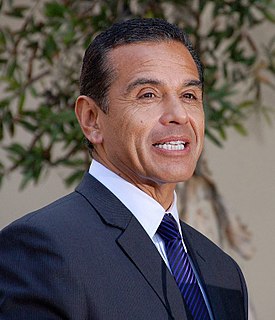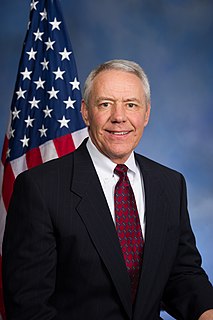A Quote by Rudy Giuliani
My attempt is to try to broaden the base of the Republican Party, to try to bring in people that can agree and that can disagree on that, because I think the issues that we face about terrorism, about our economy, about the growth of our economy are so important that we have to have the biggest outreach possible.
Related Quotes
Well, I think the way to go is civil unions. But I do think when you talk about the Republican Party and the debates that are going on within the Republican Party on a number of issues, what I'm hoping is that they will get to a point where they will work with us on moving forward with this economy.
My biggest disappointment was, of course, the coup attempts, ... The economy was proceeding very well, but in 1989 we had the most serious coup attempt and ... many of the investors who were set to come here had to tell me that they chose to go to other countries because of the uncertainty brought about by (the coup attempt.) If that had not happened, I'm sure our economy would just be booming today.
Well, I think that when you think about the challenges we face, these are challenges that require us to look forward and not backwards. When it comes to the economy I think we have to recognize that we are now in a global economy. And that the measure of our success is: how well are we training our workers? How well are we investing in the new energy economy?
The creative process ignites our imagination, and I believe that that same imagination is what will propel us forward with issues of social change. I do think we have to acknowledge that we are a very capitalistic and consumptive nation, and that talk about conservation or issues of sustainability is never going to be popular with the dominant culture because it means checks and balances on an economy that is reserved for the dollar, rather than an economy that honors and respects spiritual resources and the right of all life to participate on the planet, not just our species.
Given our inevitably incomplete knowledge about key structural aspects of our ever-changing economy and the sometimes asymmetric costs or benefits of particular outcomes, a central bank... need to consider not only the most likely future path for the economy but also the distribution of possible outcomes about that path. They then need to reach a judgment about the probabilities, costs, and benefits of the various possible outcomes under alternative choices for policy.
Today it's fashionable to talk about the New Economy, or the Information Economy, or the Knowledge Economy. But when I think about the imperatives of this market, I view today's economy as the Value Economy. Adding value has become more than just a sound business principle; it is both the common denominator and the competitive edge.
Our cultural industries are our biggest export, our biggest manufacturing base. Every pound spent on art education brings disproportionately large returns. It's the biggest bang for our buck. If it ain't broke, don't fix it. In fact, the more you put in, the greater the successes for the U.K. economy.
I didn't have a perfect model, but I wanted to try to blend my own personal reflections and experiences with this broader canvas to see how a lot of the narratives we have about economy and foreign policy got stuck. Because we have these categories of liberal, conservative, free marketer, open government - all these stereotypes about our politics and the categories we try to put things in are inadequate to this sort of complex, ambiguous, sometimes contradictory experience we have as ordinary people and that I have as an elected official.
For some time, I've said this issue of comprehensive immigration reform is not just an issue about immigration or human rights or civil rights, it's about our economy. You take 11 million people from out of the dark and into the light. The think tanks have surmised that you are talking about trillions of dollars infused into the economy.
I think women as well as men are concerned about jobs and the economy and spending and, and other issues. They're concerned that when their kids graduate from college they have an economy and they have a future in this country and they, they have the same opportunity that we've had and our grandparents have had.
































